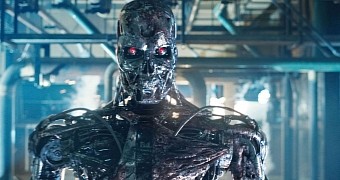Almost every generation, there is some sort of apocalypse cult making waves and separating the gullible ignorant from their money.
Mankind has an obsession with eschatology due to the fact that we would all like to live forever, oblivious to the fact that we are one of the only species fortunate enough to die of old age, instead of the most common mammalian route, teeth in the back (or front) of the neck.
So, instead of celebrating the fact that we are only seldom eaten alive, or perhaps due to survivor's guilt, we constantly fret that the whole world is coming to an end, and not just our lonely existence.
Some people say that religion will prove to be mankind's downfall, while others insist that it's the lack of it that will drive that final nail in the coffin. Aliens are also brought up in the conversation, mainly due to the fact that they belong (for the time being) in the same realm of wild and unfounded speculation.
However, one thing is certain: the signs of the apocalypse, at least those in recorder religious texts, are always vague enough that every generation believes that it would come during their lifetime, and it never does.
In order to solve this incessant problem once and for all, some industrious fellows have begun working on something known as artificial intelligence, a guaranteed one-way ticket to extinction, or at least so think some of the prominent figures of technology.
The singularity is a very likely extinction theory
One of the common bleak scenarios regarding the future of man includes a network of computers gaining self-awareness and, presumably, deciding that man is irrelevant, ineffective, or some other word that goes well with cold reason, and doesn't bode well for the mess that we humans like to cause wherever we go.
The worst thing about it is that, although alarmists have denounced this as the devil's work, there are people actively teaching machines how to climb stairs, walk through mud, get a better understanding of their environments, and so on.
Even Elon Musk, the billionaire behind Tesla Motors, and Stephen Hawking, the prodigious theoretical physicist, consider that artificial intelligence could be the single biggest threat we will face in the future, as a species.
Bill Gates is another passionate advocate of technology, and some of his predictions share the grim outlook on what artificial intelligence could become.
During a recent Reddit AMA session, Gates has shared some of his views on the near future, pointing out that the quality of life will improve vastly, and faster than any other time in history. Which is good, and a big part of that will be the ever-increasing power of automation and machine intelligence.
"I am in the camp that is concerned about super intelligence. First the machines will do a lot of jobs for us and not be super intelligent. That should be positive if we manage it well. A few decades after that though the intelligence is strong enough to be a concern."
"I agree with Elon Musk and some others on this and don't understand why some people are not concerned," Bill Gates responded to a Reddit user wondering how much of an existential threat AI could be.
Worst part is we're doing it to ourselves
We've already established that machines will become smarter and smarter, to the point where they will be able to design better machines themselves and won't need us anymore.
I remember when I used to play Quake a lot, one of the ways I would train was by using some bots, which were infinitely better than the average players I would find online or in Internet cafes. The main way I used to beat their perfect instant aim on higher difficulty levels was taking advantage of height differences and ledges their projectiles would hit before reaching me, and only popping out long enough to launch my own.
My reflexes were godly back then, but still I emerged victorious less than half the time. I don't want to think about what those endlessly frustrated bots would do to me if they had the chance to get their hands on my person.
And now people are writing scripts that can play Starcraft, a complex game where you have to harvest resources, research new technologies and control a heterogeneous army in an asymmetrical forces scenario, and improving them year by year.
I remember when things used to be easy and AI-controlled opponents would simply linger a couple of seconds too long out of cover after finishing their salvo, so you would have the time to aim and shoot them in games.
Now, in Dying Light, even zombies know how to dodge your attacks. Other humans even block your attacks and kick you off-balance. I don't even want to think what will happen in the future, as more processing power becomes available to video game developers and more advanced AI starts randomly popping up in our games.
And from there to complete world domination, the road is not too long. We need to get better at playing games and taking them more seriously, so no computer will ever get any bright ideas about standing a chance against us.

 14 DAY TRIAL //
14 DAY TRIAL //